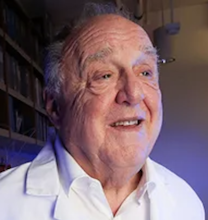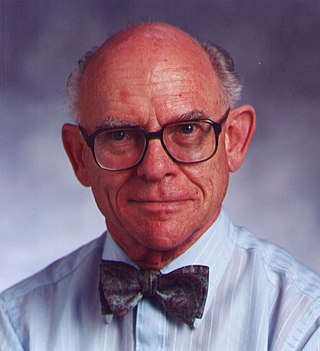Related Research Articles

The Mellon College of Science (MCS) is part of Carnegie Mellon University in Pittsburgh, Pennsylvania, US. The college is named for the Mellon family, founders of the Mellon Institute of Industrial Research, a predecessor of Carnegie Mellon University.

Scripps Research, previously known as The Scripps Research Institute (TSRI), is a nonprofit American medical research facility that focuses on research and education in the biomedical sciences. Headquartered in San Diego, California, the institute has over 170 laboratories employing 2,100 scientists, technicians, graduate students, and administrative and other staff, making it the largest private, non-profit biomedical research organization in the United States and among the largest in the world.

The Claremont Graduate University (CGU) is a private, all-graduate research university in Claremont, California. Founded in 1925, CGU is a member of the Claremont Colleges which includes five undergraduate and two graduate institutions of higher education.

The Harriet L. Wilkes Honors College is an academic, residential college of Florida Atlantic University at the John D. MacArthur campus in Jupiter, Florida. The college opened in 1999 and offers a liberal arts education through the platform of a public institution, with a focus on interdisciplinary studies. It features a student body of 500 and 32 full-time tenured and tenure-track faculty, all of whom have terminal degrees in their field. On July 1, 2020, Justin Perry began serving as dean.
Benjamin Franklin Cravatt III is a professor in the Department of Chemistry at The Scripps Research Institute in La Jolla, California. Considered a co-inventor of activity based proteomics and a substantial contributor to research on the endocannabinoid system, he is a prominent figure in the nascent field of chemical biology. Cravatt was elected to the National Academy of Sciences in 2014, and the American Academy of Arts and Sciences in 2016. He is Gilula Chair of Chemical Biology, a Cope Scholar, and a Searle Scholar.

Richard Alan Lerner was an American research chemist. He was best known for his work on catalytic antibodies and combinatorial antibody libraries. Lerner served as President of The Scripps Research Institute (TSRI) from 1987 until January 1, 2012, and was a member of its Skaggs Institute for Chemical Biology, in La Jolla, California.

The University of Georgia Graduate School coordinates the graduate programs of all schools and colleges at the University of Georgia in Athens, Georgia, United States. Established in 1910, the University of Georgia Graduate School administers and confers all professional, master's and doctoral degrees. The departments under which instruction and research take place are housed in the other schools and colleges at the university.

Frank Albert Cotton FRS was an American chemist. He was the W.T. Doherty-Welch Foundation Chair and Distinguished Professor of Chemistry at Texas A&M University. He authored over 1600 scientific articles. Cotton was recognized for his research on the chemistry of the transition metals.

The Max Planck Institute for Polymer Research is a scientific center in the field of polymer science located in Mainz, Germany. The institute was founded in 1983 by Erhard W. Fischer and Gerhard Wegner. Belonging to the Chemistry, Physics and Technology Section, it is one of the 80 institutes in the Max Planck Society (Max-Planck-Gesellschaft).

The Irell & Manella Graduate School of Biological Sciences is a graduate school for biology in the City of Hope National Medical Center in Duarte, California.
Dale Lester Boger is an American medicinal and organic chemist and former chair of the Department of Chemistry at The Scripps Research Institute in La Jolla, CA.

The Bayer School of Natural and Environmental Sciences (BSNES) is a fully accredited degree-granting institution and the primary college of undergraduate and graduate scientific research at Duquesne University in Pittsburgh, Pennsylvania. It was formed in 1994 with the separation of the Biological Sciences, Chemistry, and Biochemistry departments from the former College of Liberal Arts and Sciences, and subsequently named in honor of the Bayer Corporation. The school currently houses the departments of Biological Sciences, Biotechnology, Biochemistry, Chemistry, Environmental Science & Management, Forensic Science & Law, and Physics. The school also collaborates closely with the Duquesne University School of Pharmacy. In 2010, the department of Chemistry and Biochemistry was designated as a Mass Spectrometry Center of Excellence by Agilent Technologies, allowing for collaborative research into metabolics, proteomics, disease biomarkers, and environmental analysis. In 2011, Duquesne University became one of 98 universities nationwide, and one of nine Catholic universities, to be designated as a high research activity institution by the Carnegie Foundation.
Jeffery W. Kelly is an American chemist and entrepreneur who is on the faculty of the Scripps Research Institute in La Jolla, California.

Indian Institute of Science Education and Research, Bhopal is an autonomous research institute in Bhauri, Bhopal district, Madhya Pradesh, India. It was established by the Ministry of Education (India), Government of India in 2008 in order to incorporate research in fundamental science at undergraduate and graduate level, with equal emphasis on higher education for research and education in science. It is an autonomous institution awarding its own degrees.
The New York University Graduate School of Arts and Science (GSAS) is a school within New York University (NYU) founded in 1886 by Henry Mitchell MacCracken, establishing NYU as the second academic institution in the United States to grant Ph.D. degrees on academic performance and examination. The School is housed in the Silver Center, several departments have their own buildings and houses around Washington Square. The graduate program at Courant Institute of Mathematical Sciences, although run independently, is formally associated with the graduate school.

William R. Roush is an American organic chemist. He was born on February 20, 1952 in Chula Vista, California. Roush studied chemistry at the University of California Los Angeles and Harvard University. Following a year postdoctoral appointment at Harvard, he joined that faculty at the Massachusetts Institute of Technology. In 1987, Dr. Roush moved to Indiana University and was promoted to Professor in 1989 and Distinguished Professor in 1995. Two years later, he moved to the University of Michigan in Ann Arbor and served as the Warner Lambert/Parke Davis Professor of Chemistry. He served as chair of the University of Michigan's Department of Chemistry from 2002-2004. In 2004 Professor Roush relocated with his group to the Jupiter, Florida campus of the Scripps Research Institute (TSRI) where he is currently an emeritus professor.
The College of Science at Virginia Tech contains academic programs in eight departments: biology, chemistry, economics, geosciences, mathematics, physics, psychology, and statistics, as well as programs in the School of Neuroscience, the Academy of Integrated Science, and founded in 2020, an Academy of Data Science. For the 2018-209 academic year, the College of Science consisted of 419 faculty members, and 4,305 students, and 600 graduate students The college was established in July 2003 after university restructuring split the College of Arts and Sciences, established in 1963, into two distinct colleges. Lay Nam Chang served as founding dean of the College of Science from 2003 until 2016. In 2016, Sally C. Morton was named dean of the College of Science. Morton served in that role until January 2021, when she departed for Arizona State University and Ronald D. Fricker—senior associate dean and professor in the Department of Statistics—was named interim dean of the College. In February 2022, Kevin T. Pitts was named the named the third official dean of the College of Science.

The Scripps Energy & Materials Center (SEMC) is an American research center that focuses on research in the basic energy and materials sciences. Located in Jupiter, Florida, the center has scientists, graduate students, and administrative staff. The SEMC is a part of the Scripps Research Institute (TSRI), one of the largest non-profit research institutes in the world.

Judith P. Klinman is an American chemist, biochemist, and molecular biologist known for her work on enzyme catalysis. She became the first female professor in the physical sciences at the University of California, Berkeley in 1978, where she is now Professor of the Graduate School and Chancellor's Professor. In 2012, she was awarded the National Medal of Science by President Barack Obama. She is a member of the National Academy of Sciences, American Academy of Arts and Sciences, American Association for the Advancement of Science, and the American Philosophical Society.
James C. Paulson is an American biochemist and biologist known for his work in glycobiology.
References
- ↑ America's Best Graduate Schools 2014, U.S. News & World Report, 2014.